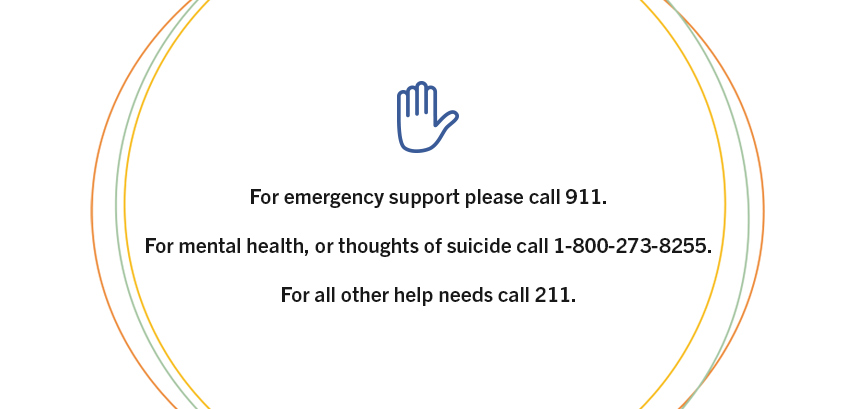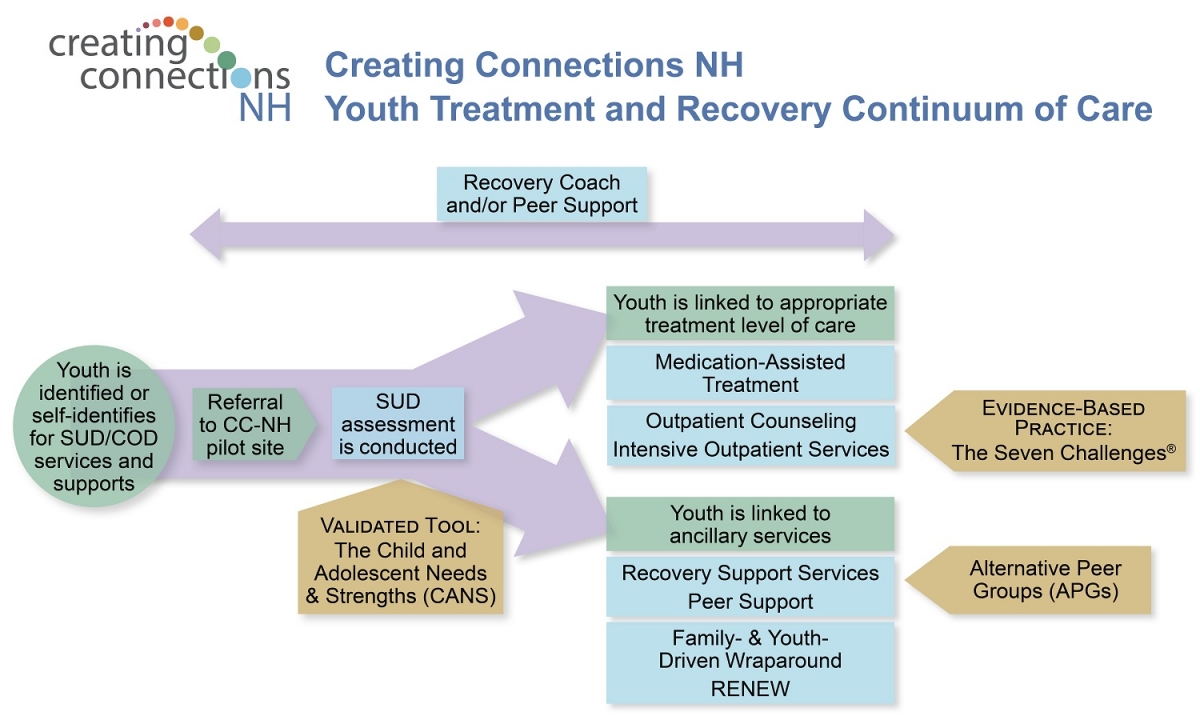Heidi Cloutier from the University of New Hampshire Institute on Disability (the Institute) presented on the work that Institute is doing statewide in order to improve the continuum of youth treatment around substance use disorders in New Hampshire. Heidi’s role is specifically in the development and implementation of a program known as Creating Connections. Creating Connections is a New Hampshire wide project to stand up peers peer support specific to youth.
Creating Connections NH is a federally-funded project to develop and implement a system of care for youth (ages 12-25) with Substance Use Disorders (SUD) and co-occurring mental health disorders and SUD (COD).
- The primary project goals are to: Design and provide training and supports to deliver developmentally appropriate, research-based screening and brief intervention to youth in the pilot regions.
- Provide training for implementation of research-based assessments, including the CANS (Child and Adolescent Needs and Strengths Checklist) to guide treatment planning.
- Design and provide training for implementation of developmentally-appropriate research-based treatment services consistent with System of Care values and principles and ASAM continuum of care, including training in the Seven Challenges, Motivational Interviewing, Care Coordination, Family- and Youth-Driven Wraparound, Peer Support, RENEW, Medication Assisted Treatment, Recovery Coaching, and other evidence-based practices.
- Identify critical barriers in state and federal licensing policies, rules, and regulations that interfere with the development of high-quality assessment, treatment, and recovery services for youth and young adults with SUD or SUD/COD.
These alternative peer groups came about because New Hampshire has higher concerns than other states for those ages 12 to 25 using substances. Additionally, in New Hampshire rates of substance use significantly increase after age 18, with the young adult population. The Creating Connections project is really focused on serving youth between the ages of 18 and 25. During the research and development phase of the grant the Institute heard from youth and families that one of the things that was most impactful in their recovery was youth and family support. Subsequently the concept of alternative peer group model which focuses on building recovery capital for youth and families, creating communities where young people can come together and engagement with other youth that have similar experiences. The program has seen great success in Nashua and other locations.
It is now coming to Manchester. The Institute will be partnering with Hope for New Hampshire Recovery to add an alternative peer group in the Greater Manchester area. There are currently four other alternative peer groups in New Hampshire at locations including the Nashua Mental Health Center, Live Free Recovery in Newton, Seacoast Outright in Portsmouth and Live Free Recovery. There are also plans to expand to the Rochester or Dover community soon.
To learn more about the peer support group in Manchester contact Keith Howard, Executive Director of Hope for New Hampshire Recovery at 603.361.6266 [email protected].



